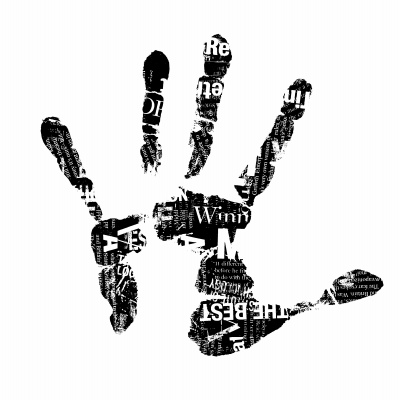The author biography section in a book proposal seems to be one of the least anxiety-provoking sections, yet I often see areas that could be improved. Here are a few ideas on how to make your author bio section the best it can be.
Include a portrait
When I was an intern on Capitol Hill, one of my duties was to open the mail. On one occasion, we received a resume that included a portrait, which was not the common practice at that time. The portrait wasn’t large, and if you looked like this man, you would put your picture on everything, too. But the office manager said, “I would never hire him. He’s an egomaniac.” Now, maybe my office manager was jealous. (And no, I don’t think he’s reading this). But I thought including a picture was a great idea. On proposals, Steve Laube recommends including a portrait in the author bio. And no, no one will think you are an egomaniac. I have put together many proposals under our banner, and I can tell you that including the visual is helpful. We like portraits that are about the size of a postage stamp. Most pleasing is to have the picture on the left hand margin, with the text wrapped around it.
Speaking of text…
Always write in third person. At first, writing about yourself in third person will feel strange, and maybe even a little arrogant. But don’t dismay. Once you get the hang of it, writing this way is fun. The reason why we ask that you write this section in third person is because your proposal is being presented by your agent, not you. So third person makes sense.
So what do I include?
I like to see a snippet about your life that gives me an idea about who you are. It’s fine to say you live in God’s beautiful country of (name your state — we all think we live in the closest place to Eden), with your spouse/kids/pet monkey named Ivan and you enjoy reading/teaching Sunday School/skydiving. This can be a good place to tell me about your education unless you want to list that under a separate heading. I’d like to see why you are passionate about writing about romance/the Amish/fatherhood/Saturnites.
Special Qualifications
If you are writing about a topic that requires familiarity and expertise, such as the Amish, it’s fine to put your special qualifications here, because this is about yourself, and about your life. Say you worked on a ranch every summer during high school, and your novel is set on a ranch. You can include that information here. Not all proposals will include this section.
Professional Organizations
This listing can appear in the marketing section, but in my view, the organizations you choose to join are really more about you and your professional development than marketing opportunities. One exception: if you are a member of organizations with the sole mission of marketing books, then it would make sense to include those under your marketing helps section. I recommend writing out the names of the organizations rather than using just acronyms, and include the links to their sites. Truly, CBA agents will know major groups such as ACFW immediately, but it’s still professional to include the complete information. I remember once receiving a proposal where the author listed about twenty (no kidding) organizations, using nothing but acronyms. I wonder if the author knew what all the initials stood for. With that many organizations, I’ll admit a few of them stymied me. Not only that, but the author appeared either to be addicted to joining clubs, unfocused, or worse. Better to choose one or two excellent organizations and devote yourself to those rather than racking up memberships, thereby diluting your effectiveness in them and their benefit to you.
Next time…
I hope to blog about marketing helps. In the meantime, enjoy writing your author bio. This is one time you can brag without worrying about making your sister in law jealous.
Your turn
What special qualifications do you have to write your WIP?
What is the most challenging part of the author bio for you?












